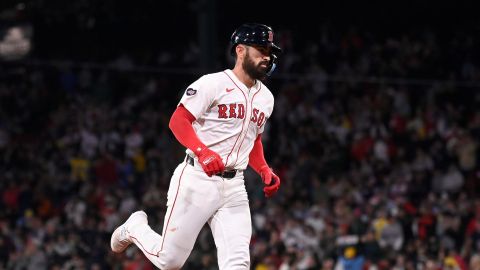Editor’s note: This story was originally published on Nov. 23, 2009.
God, country and family are the three traditional American values. But in some New England households, the Red Sox trump everything.
Combine that passion with TV, newspaper, radio and the Internet — where information is just a Google search away — and it’s not easy to find anything Red Sox-related that flies under the radar. However, assistant general manager Ben Cherington has managed to do just that.
Cherington might not be a familiar name to the casual fan, but for the Sons of Sam Horn crowd and the Red Sox themselves, he is an invaluable member of the organization.
Since joining the club in 1999 — after being an advance scout with the Indians in 1998 — Cherington has worked his way up the org chart over the past decade. He began as a mid-Atlantic scout for Boston before heading to the team’s baseball operations department. After two years as coordinator of international scouting, the Meriden, N.H., native was named assistant director of player development in 2002 and was promoted to director of player development later that year.
When Theo Epstein took a brief hiatus during the 2005-06 offseason, Cherington was named co-general manager with Jed Hoyer. Prior to that, Cherington, Hoyer and Larry Lucchino helped broker the Josh Beckett trade with the Marlins. That deal brought Beckett, Mike Lowell and Guillermo Mota to Boston for Hanley Ramirez, Jesus Delgado, Harvey Garcia and Anibal Sanchez. To say the move worked out well for Boston would be like saying Ben and Jerry enjoy ice cream. Without Beckett and Lowell, the Red Sox wouldn’t have won the 2007 World Series.
After Epstein returned as GM before the 2006 season, Cherington and Hoyer became a two-headed assistant GM. Cherington handled minor league affairs and oversaw player development and scouting. Hoyer handled major league affairs, transactions and contracts, doing everything from evaluating talent to negotiating contracts to analyzing sabermetrics.
Under Cherington’s watch, the farm system prospered and the team added players like Jonathan Papelbon, Dustin Pedroia, Clay Buchholz, Jacoby Ellsbury, Daniel Bard, Justin Masterson and Casey Kelly via the draft. Now that Hoyer has become the Padres’ new GM, Cherington slides into the role as Epstein’s right-hand man and will focus on roster construction, professional player evaluation and contract negotiations.
This winter will be a big offseason for the Red Sox, and Cherington will play a major part in determining which direction the team goes. He knows every player in the organization. This knowledge will come in handy as the Red Sox evaluate whether the risk of giving up prospects is worth the reward of adding Adrian Gonzalez, Miguel Cabrera or some other slugger to the lineup.
Cherington is used to pressure and great expectations. He is one of the reasons why the Red Sox were able to snap their 86-year slump in 2004 and win two championships in the last five years.
But all that success is in the past. Eighty-six years of misery have all but been forgotten. Fans no longer accept the idea that the season will inevitably take a turn for the worse the way they did up until Boston won the World Series in 2004. Today, the Yankees are world champs, and the Red Sox haven’t won a World Series in two seasons. Red Sox Nation no longer represents the most patient fans on the block. They don’t want to wait until next year, and neither do the people working on Yawkey Way.
Winning changes everything.
Originally hired by former Red Sox GM Dan Duquette, Cherington is one of the few people in a position of power in the Red Sox organization who has been around long enough to be a part of the Yawkey Trust and the new ownership group comprised of John Henry, Tom Werner and Lucchino, whose goal upon arrival was bringing multiple championships to Boston.
It still is.
Cherington understands the Red Sox’ mission as well as anybody. His experience with both regimes and the cultural shift that ensued gives him insight on two different eras — BC (Before Championship) and AC (After Championship). That unique perspective makes him an underrated asset.
Cherington doesn’t wear a Red Sox uniform, but his input these next few months will have a major impact on what kind of success those who do have in 2010.
***
NESN.com will answering one Red Sox question every day in November.
Sunday, Nov. 22: Who should be the setup man?
Tuesday, Nov. 24: Should the Red Sox let Daisuke Matsuzaka return to his own throwing program?



